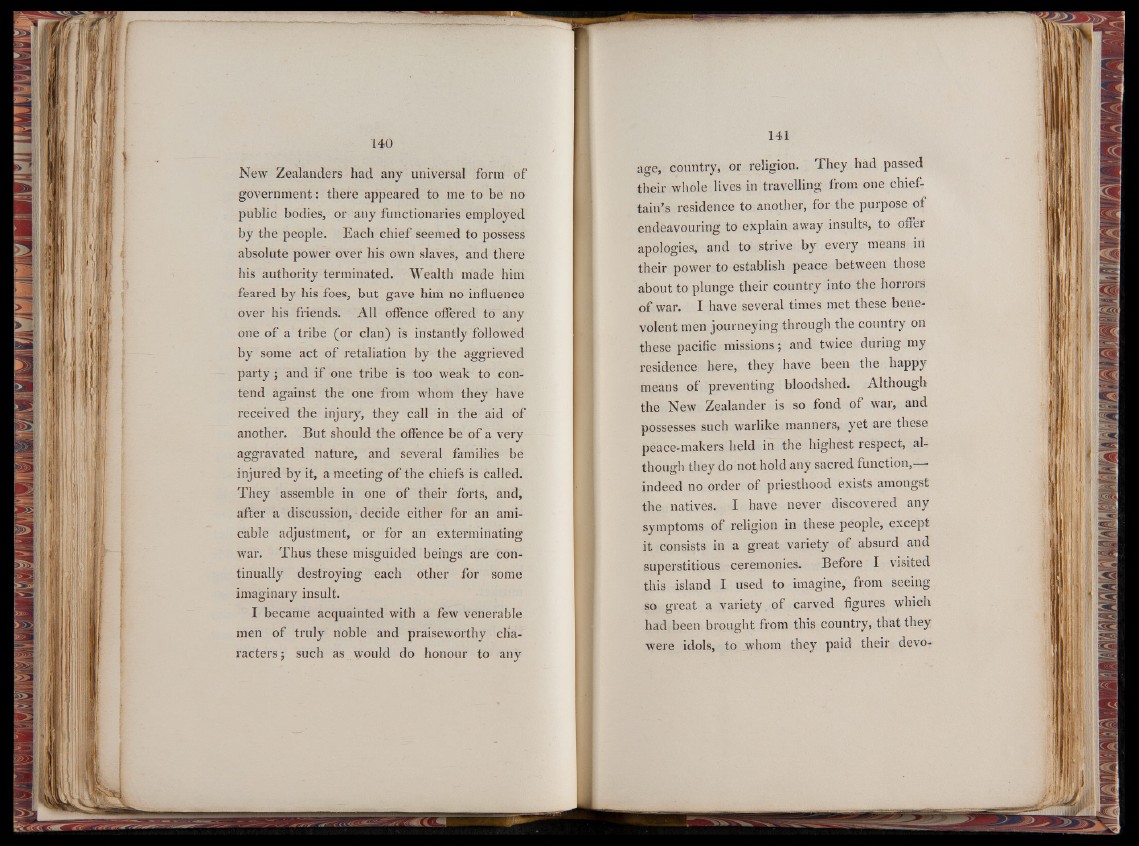
New Zealanders had any universal form of
government: there appeared to me to be no
public bodies, or any functionaries employed
by the people. Each chief seemed to possess
absolute power over his own slaves, and there
his authority terminated. Wealth made him
feared by his foes, but gave him no influence
over his friends. All offence offered to any
one of a tribe (or clan) is instantly followed
by some act of retaliation by the aggrieved
party ; and if one tribe is too weak to contend
against the one from whom they have
received the injury, they call in the aid of
another. But should the offence be of a very
aggravated nature, and several families be
injured by it, a meeting of the chiefs is called.
They assemble in one of their forts, and,
after a discussion, decide either for an amicable
adjustment, or for an exterminating
war. Thus these misguided beings are continually
destroying each other for some
imaginary insult.
I became acquainted with a few venerable
men of truly noble and praiseworthy characters
j such as would do honour to any
age, country, or religion. They had passed
their whole lives in travelling from one chieftain’s
residence to another, for the purpose of
endeavouring to explain away insults, to offer
apologies, and to strive by every means in
their power to establish peace between those
about to plunge their country into the horrors
of war. I have several times met these benevolent
men journeying through the country on
these pacific missions; and twice during my
residence here, they have been the happy
means of preventing bloodshed. Although
the New Zealander is so fond of war, and
possesses such warlike manners, yet are these
peace-makers held in the highest respect, although
they do not hold any sacred function,—■
indeed no order of priesthood exists amongst
the natives. I have never discovered any
symptoms of religion in these people, except
it consists in a great variety of absurd and
superstitious ceremonies. Before I visited
this island I used to imagine, from seeing
so great a variety of carved figures which
had been brought from this country, that they
were idols, to whom they paid their devo